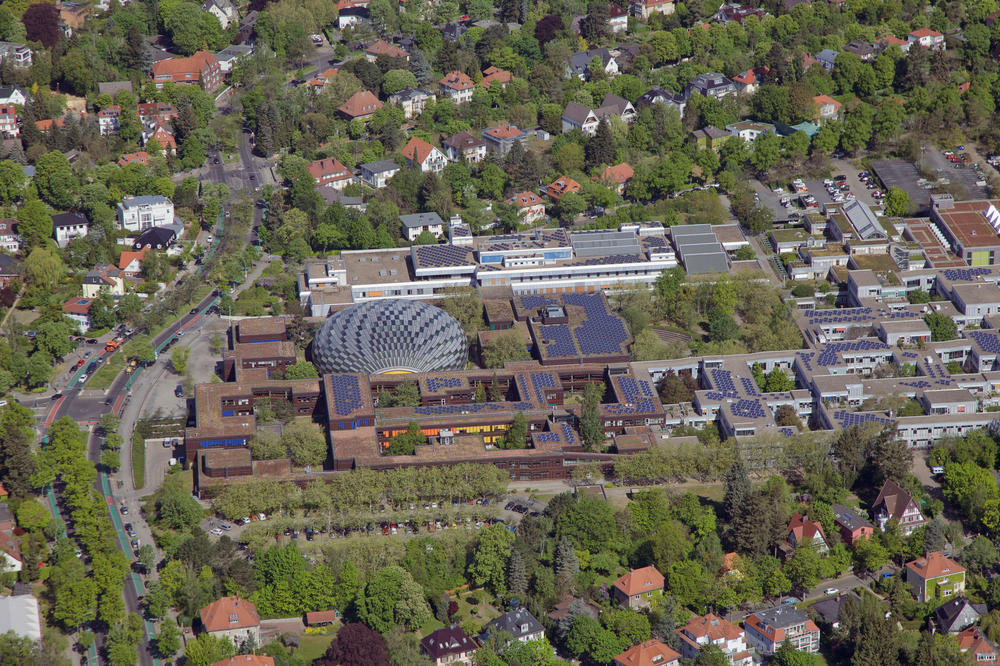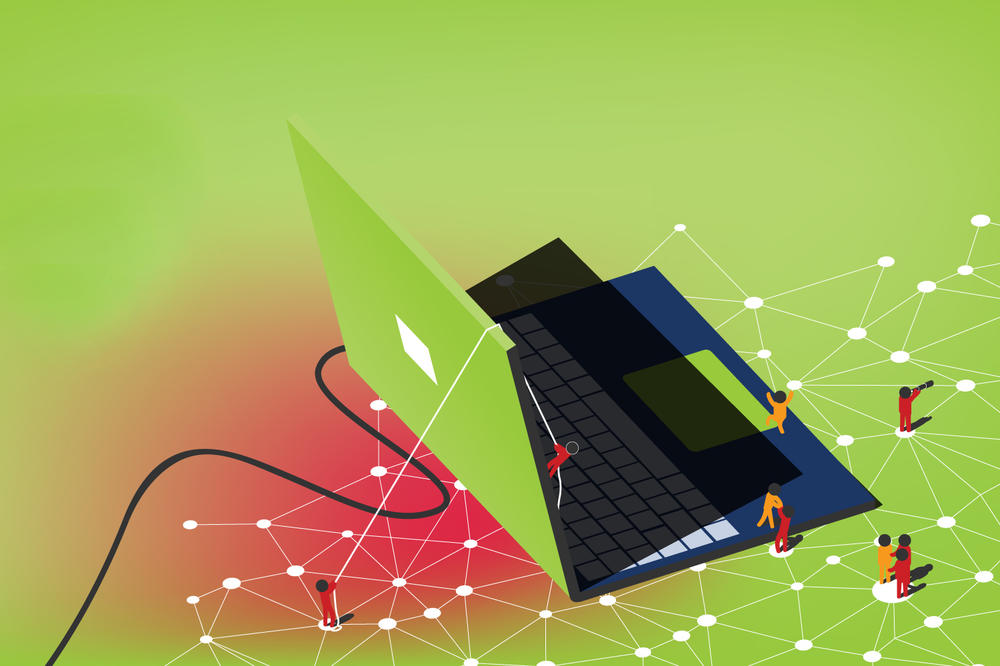“There is no better time”
Numerous focus groups were formed during the digital kick-off of the “Teaching and Education in 2030” participatory process – You can still join one or start a new focus group until November 29.
Nov 20, 2020
The goal of the Teaching and Education in 2030 participatory process: To develop a teaching and learning strategy and a mission statement for teaching and studying at Freie Universität.
Image Credit: Dirk Laubner
At the beginning the picture flickers a little like TV reception during a thunderstorm, but then everything works: Even though it had to take place digitally and later than the event originally scheduled for the end of April, the official start of the strategy process “Teaching and Education in 2030 – Shaping the Future Together” on Monday, November 16, was a success. About 160 interested members of Freie Universität tuned in to the kick-off meeting. Freie Universität was represented in all its diversity: students, instructors, researchers from the departments and central institutes, and employees in the university administration and service areas.
The kick-off event was preceded by a digital world café in June, when the participants met online in small groups and discussed the summer semester held digitally as a result of the coronavirus pandemic under the theme “A Semester Like No Other.”
“Teaching and Education in 2030 – Shaping the Future Together” is a campus-wide participatory process aimed at developing a shared vision for the future of education and teaching.
How should teaching and learning at Freie Universität be organized? The university is addressing this in a broad, participatory process. The goal: to develop a vision for the future of studying and teaching.
Image Credit: Elias Domsch
“The strategy process is an opportunity for all members of the university to help shape a vision for studying and teaching at Freie Universität Berlin,” said Professor Hauke Heekeren, welcoming the participants to the kick-off. “Everyone can make a contribution.” As Vice President of Freie Universität, neuroscientist Heekeren is responsible for the areas of studying and teaching, among other things, and initiated the strategy process, which the Executive Board adopted last year.
The design of the future teaching and learning strategy is being discussed in a broad participatory process. All those involved meet on an equal footing, whether students, professors, employees in administration and libraries, academic staff or private lecturers: the diversity of perspectives is required.
Postponed due to the Pandemic Situation
The kick-off meeting was originally scheduled to take place at the end of April. But the coronavirus pandemic not only made a face-to-face event impossible, it also drew attention to the unexpected challenges that the suddenly digital 2020 summer semester brought with it.
Numerous interested parties had already shared their experiences at the digital world café discussion event in June “A Semester Like No Other: Challenges and Experiences in Studying and Teaching during the 2020 Summer Semester.”
Goal of the Kick-off: To Gather Ideas and Form Focus Groups
In the next steps, the focus will not be on the coronavirus situation, but rather on the long-term challenges in studying and teaching that existed before the pandemic and that will continue afterward. Vice President Heekeren deliberately left open what these topics are. The aim of the kick-off was to collect ideas as impartially as possible.
Randomly distributed over 17 virtual discussion tables, the participants initially collected spontaneous answers to the broad questions: “What is a sustainable teaching and learning culture for Freie Universität Berlin?” and “What would we like to change – for ourselves and in the institution to establish a sustainable teaching and learning culture?” The results of the discussions in the morning were then used to form 22 proposals for focus groups on specific topics to which the participants could assign themselves according to their interests.
Focus Groups Open to New Members until November 29
Interested members of the university can join these groups until November 29. The focus groups will independently develop recommendations for their respective areas in the coming weeks. These recommendations are to be compiled at a wrap-up event in March and discussed publicly at the university.
Innovative teaching, learning, and examination formats, quality assurance, diversity and inclusion, professionalization of university teaching, interdisciplinarity, student teaching and learning projects – these are some of the keywords for which ideas are now being developed. The process is dynamic: participants from some smaller working groups have come together, while others decided to join different focus groups and bring cross-group cross-sectional tasks into different groups.
Experiences from the Pandemic Are Influencing the Concept for Education for the Future
Before the group work began, those attending the kick-off discussed their priorities very intensively. Their considerations about what is necessary for good teaching and learning were also influenced by their experiences with the pandemic this year.
There was little doubt that many of the digital teaching formats that were necessary during the low-contact summer semester should be part of the concept for teaching in the future – such as blended learning, a format that combines online and offline methods.
Additional Work for Instructors and Issues of Fairness
Gisela Romain, a researcher at the Department of Education and Psychology, pointed out that as practical as new technologies are, they often require considerable additional work of instructors, students, and service or support staff.
Georgios Sollbach, a student of chemistry and political science, stressed that even in times of crisis, education needs to be fair and it is important to pay more attention to equal opportunities.
Sabine Achour,a professor of political education, noted that the pandemic brought major challenges for studying and learning. She said, “The coronavirus functions like a magnifying glass.” She sees it as an opportunity: “There is no better time to devote yourself to fundamental issues about good teaching.”
The original German version of this interview was published on November 18, 2020, in campus.leben, the online magazine of Freie Universität Berlin.
Further Information
Participatory process: Teaching and Education in 2030 – Shaping the Future Together
All members of Freie Universität are invited to participate in the strategy process. Even those who did not take part in the kick-off can still join the focus groups until November 29, 2020.


